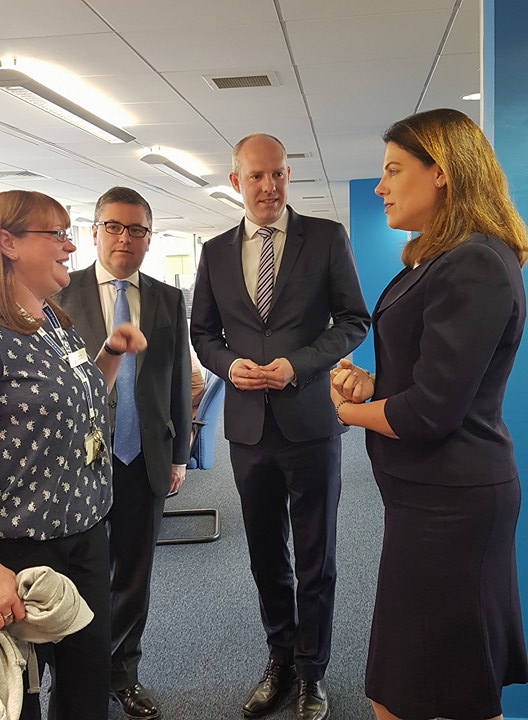
Local MPs Justin Tomlinson & Robert Buckland have met with officers and cabinet members from Swindon Borough Council to discuss the roll-out of Universal Credit.
Previously, people in need of support had to negotiate a minefield of different types of support and when they did receive support, they often encountered an absurd cliff-edge which meant that any entitlement to support once they worked more than 16 hours a week. But Universal Credit simplifies six benefits into one and removes the cliff-edge which acted as a disincentive to move in to work and progress in a career.
The ultimate aim of Universal Credit is to ensure it always pays to be in work, and to achieve this ‘work allowances’ have been introduced as part of the scheme. Work allowance is the amount a clamant can earn while still receiving the maximum Universal Credit they are entitled to, once they are earning above that amount their pay is tapered away gradually.
In the 2016 Autumn Statement the Chancellor announced that the taper rate for Universal Credit would be reduced in April this year from 65% to 63% - meaning people keep more of what they earn and will be better rewarded for increasing their hours or pay. The move effectively operated as a targeted tax cut worth £700m in 2021-22 for those on low incomes, and will benefit 3 million households in the UK.
Alongside these changes, the Government has also introduced dedicated work coaches for the first time. These coaches will support an individual who is seeking employment, and then continue to provide tailored advice to encourage a person to progress further.
An independent review of Universal Credit concluded that those who had already been transferred across to the new benefit were:
- 13 per cent more likely to have been employed
- On average, working 12 days more
- On average, earning more
- More than twice as likely to be trying to work more hours if they were working less than 30 hours a week
Families on Universal Credit who move into work are also able to claim back up to 85% of their childcare costs – boosting their finances by over £13,000 a year. This helps ensure that families with children are not disadvantaged when seeking work or looking to progress in their career or take on extra hours.
While the roll-out has led to the welcome improvements above, the Government is working to ensure the system work for everyone. While additional support, like Discretionary Housing Payments, are already available for those who face immediate challenges, the Government has listened to experts so that the system can be improved further.
Last week the Work & Pensions Secretary David Gauke MP announced:
- Claimants who need an advance payment will not have to wait six weeks. They will receive this advance within 5 working days.
- If someone is in immediate need, we fast track the payment, meaning they will receive it on the same day.
These changes will improve the tailored support available to people while ensuring that more people across the country can move across to Universal Credit.
Justin Tomlinson MP said: “It was good to sit down with Swindon Borough Council to discuss the roll-out of Universal Credit. This is an important change to how our welfare system works to ensure work always pays and creates a system which is easier to navigate. Swindon was the first large Jobcentre in southern England to have a full Universal Credit service, meaning that people receiving support in a wide range of areas can take advantage of the new, faster and more efficient system. We are also lucky to have a number of engaging and enthusiastic staff at the job centre in Swindon who are actively working alongside the business community and can tailor the training that jobseekers receive so that they are able to fill vacancies.”

